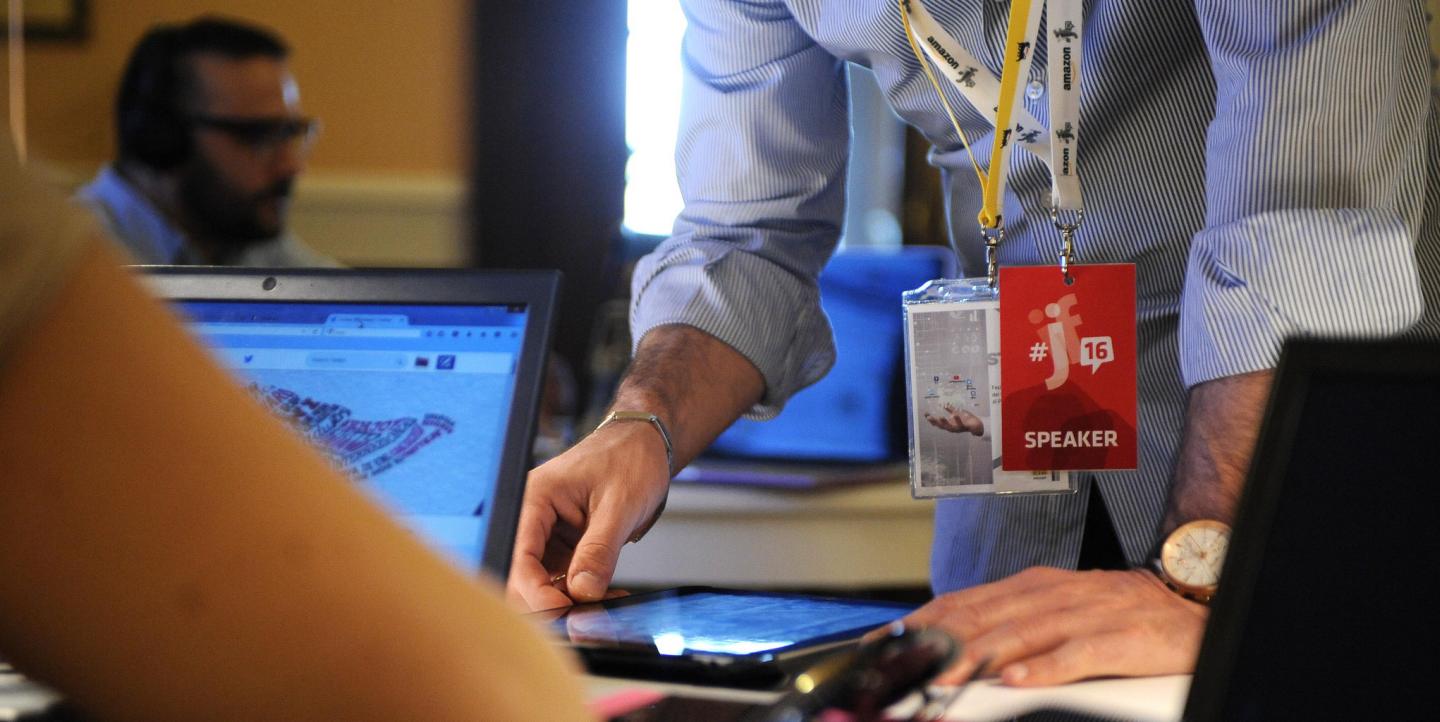This year’s International Journalism Festival in Perugia, Italy was dominated by two events unfolding elsewhere that demonstrated the continual reshaping of the global media landscape: the release of the Panama Papers and announcements at Facebook’s F8 developer conference.
The Panama Papers was cited as an example of how a new type of collaborative reporting network could shape the global political agenda with revelations about hidden wealth and tax havens gleaned from a yearlong data-driven investigation.
Facebook’s announcements of its expanding toolkit for news, video and messaging to reach billions of users stimulated debate about the opportunities and dangers inherent in becoming too dependent on the platforms that increasingly control media distribution.
It was these themes of the power of networks and platforms which became the recurrent issues discussed over five days of sessions held in Perugia.
On journalism and networks, the Panama Papers loomed large in discussions. This was especially true for the Code for Africa team at the festival, as our sister organization the African Network of Centers for Investigative Reporting (ANCIR) and its reporting partners revealed story after story detailing the high-profile individuals in over a dozen African countries caught up in the investigation. ANCIR’s Panama Papers investigations and the scale of global illicit and suspicious money flows were the topics discussed in a session on unmasking the corrupt. Elsewhere organizations focused on creating better tools for journalism stressed how reporters often aren’t natural collaborators but that new models of partnership — exemplified by the Panama Papers and previous investigations by the International Consortium of Investigative Journalism — could help achieve more ambitious public interest journalism and impact than anything a single publication could do alone.
At a session on platformed publishing, a cross section of media interests were represented from the worlds of research, journalism and business to social networking and digital media. The conversation here was more constructive than the platform bashing that simmered under the surface of several other sessions. A consensus view was that news organizations must shape their long-term strategies before jumping onboard with all the new platforms. If they don’t, according to a recent speech by panelist Emily Bell, publishers stand to "lose control over your relationship with your readers and viewers, your revenue and even the path your stories take to reach their destination."
In general, sessions about platforms moved away from the curiosity of the new that I’ve experienced at previous media festivals and instead focused on long-term questions about platforms’ impact on society. Beyond business arguments, probing questions were asked about whether or not a horrific viral image changed the conversation around the European refugee crisis and if the rise of closed messaging networks will bring a decline in the sharing of eyewitness testimonies on public platforms.
At an event on creating new products in the newsroom, panelists talked of breaking down Chinese walls and siloes, but feared that media organizations are more often than not too slow to exploit new opportunities. Here the main takeaway was a warning that news products hardly ever thrive unless all teams within an organization are involved and especially when the business or technology side of media business doesn’t get buy-in from editorial.
Automation and losing journalism jobs to technology were other topics explored during several sessions. This was prescient at a festival that had its own Telegram-powered bot to answer questions about the schedule and speakers.
Personally, I found the most interesting sessions addressed issues of how organizations can best build trust with new audiences. One panel suggested that using automated verification techniques to dispel rumors and misinformation would help build or restore citizens’ trust in journalism with impressive tools from the Reveal Project, InVID and Verified Pixel making this easier and cheaper for newsrooms. Another focused on how curating better online communities on or off publishers’ own platforms to bring readers together could prove to be a hugely valuable exercise to keep people engaged with topics that deeply resonate with them.
Overall, the possibilities, avenues, platforms, experiments and tools laid out before festival-goers were dizzying and hugely impressive. A thousand experiments are blooming in technology companies, news organizations and communities across Europe. So the big question for everyone present was: where is my organization going and what platforms, tools or networks can help me along the way?
You can now watch videos of all the sessions from the festival via YouTube by following the links to sessions that interest you.
Stephen Abbott Pugh works on audience engagement strategies with Code for Africa. Learn more about his work as an ICFJ Knight Fellow here.
Main image CC-licensed by Flickr via Eni.

